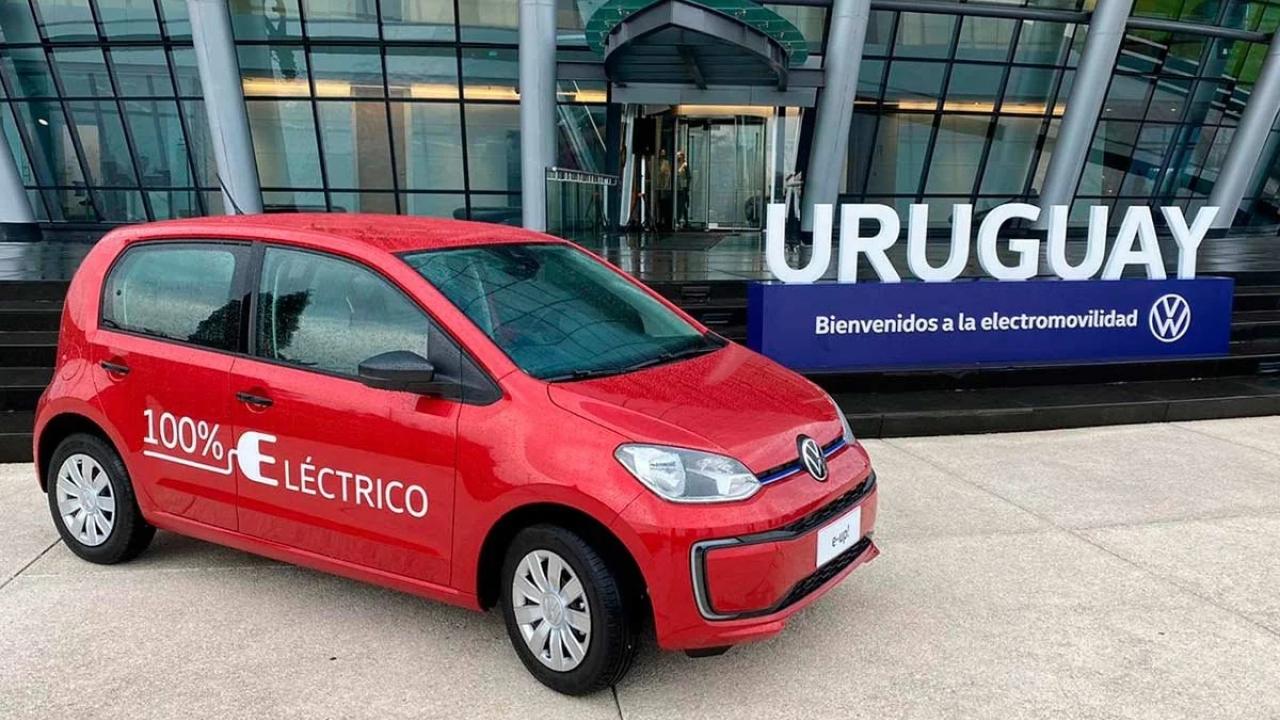
The Investment Law Enforcement Commission had established a maximum price for the purchase of vehicles that was corrected this year.
The government of Uruguay modified the maximum price for the purchase of electric cars that can be included in projects presented to the Investment Law Application Commission (Comap) and receive tax benefits.
Importers from the Uruguayan country warn that the modification was not communicated in a timely manner, it is retroactive, and it changes the rules of the game.
A presidential decree in 2020 established criteria and indicators – such as job creation, increased exports and use of clean technologies – to grant benefits to projects promoted by Comap.
He pointed out that passenger vehicles – even electric ones – could be part of the projects as an eligible investment and generate a good score in the clean technologies indicator.
Then, the general basic operating criteria of the decree established other conditions.
There it was explained that investments in electric vehicles could not have a CIF value (merchandise plus cost, insurance and freight) greater than US$60,000.
In December 2023, Comap introduced an important change: the cap price would be US$27,000. The decision generated uncertainty in the automotive sector, but days later the commission ordered a new modification.
Finally, it reported that the CIF import value for electric passenger vehicles could not exceed US$40,000.
The amount was established until August 31, 2023.
On February 21 of this year, Comap indicated that "according to variations in international prices, the CIF import value for electric passenger vehicles is modified, which may not exceed US$30,000."
The validity was set from February 22 (one day later) and until August 31, 2025.
He explained that for the investment projects presented, the acquisition of passenger vehicles with exclusively electric motorization would be considered an eligible investment and that the units should be used exclusively for the company's activity.
He added that for the purposes of the promotion, the cars should be part of an investment project in which they represent a maximum of 25% of the total venture.
THE ELECTRICAL MARKET AND THE REACTION OF IMPORTERS
According to data from the Automotive Trade Association of Uruguay (ACAU, a union of importers in the sector), between January and June of this year, 2,246 electric vehicles were sold, practically triple that of the same period in 2023 when there had been 784.
In the semester there were 1,664 cars, 372 sports utility vehicles (SUV), 189 light utility vehicles and 21 trucks.
The commercialization of electric vehicles has grown steadily in recent years and the view of importers is that one of the reasons was the possibility of including them as an eligible investment in the projects presented to Comap.
“It was largely the explanation for the strong growth of electric companies for a long time,” ACAU manager Ignacio Paz told El Observador .
The estimate is that this segment will continue to increase but there is also the perception that it could do so much more if the reduction in the maximum price had not been implemented.
At ACAU the change caught attention. Paz reported that the union found out the day before the modification came into effect.
“What we always ask for in these instances is predictability. The government can take whatever measure it deems appropriate, but it has to allow time to adapt so that there is no unnecessary damage. Because by not warning it causes easily avoidable harm,” he said.
The first step that ACAU took was to request a meeting with representatives of Comap, which could not be held. The second was to send a note to the Ministry of Economy asking for answers. But they haven't arrived yet.
In that letter, several cases of projects that included electric cars were mentioned, but that were subsequently excluded from the tax benefit due to the modification.
For this reason, the union understands that there is a retroactive application of the regulations that is incorrect. “There were rules of the game and they played with those rules; They cannot be changed later,” Paz said.
“At one point Comap said: these cars are eligible within an investment project. So they were included because they complied with what the standard said. But when they went to execute (the project), the response was that they were not eligible,” he explained.
“The request is that it not be applied retroactively,” he added.
One of the arguments that was used some time ago when the modifications were considered (such as the one carried out last year) is that businessmen included high-end automobiles in the projects they presented to Comap. And that's why the price decrease.
However, Paz stated that nowhere in the decree or additional regulatory texts does it mention that these types of vehicles were excluded. It was also not clarified which cars were considered, due to their characteristics, high-end.
“Let them say the rules clearly and we will adjust to that. But the cars were later rejected for a criterion that is not in the norm and now we do not even have an answer to our queries,” concluded the ACAU representative.









